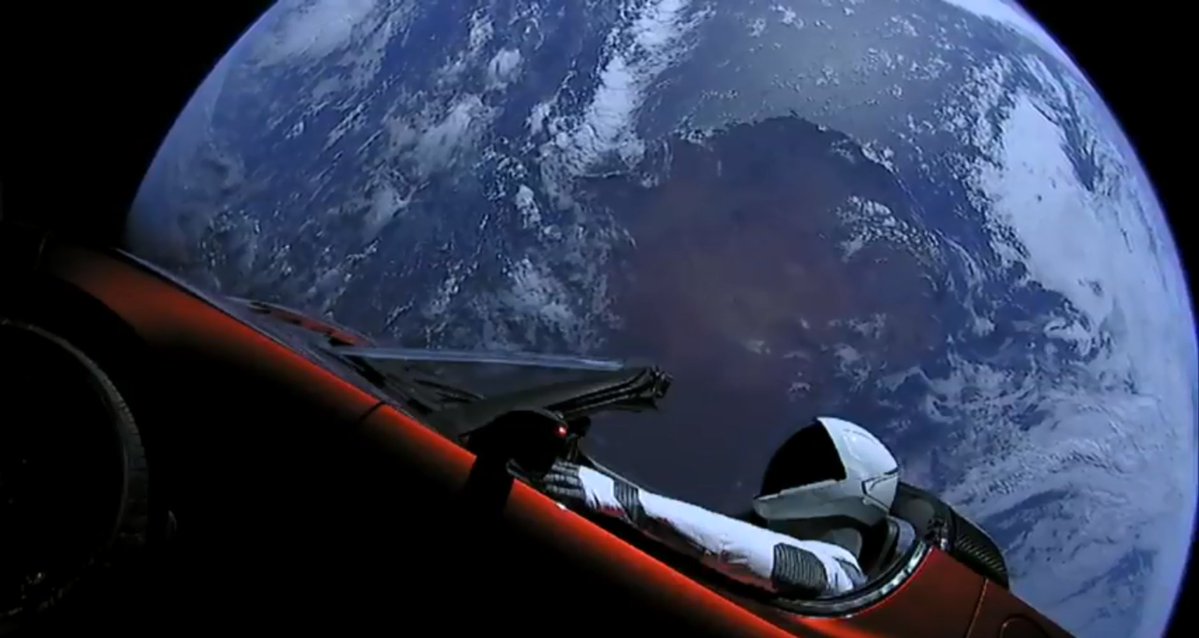A new report is claiming that the Tesla Roadster, that is currently cruising through space and moving towards Mars, might contaminate space. Last Month SpaceX got huge appreciation and applauds for successfully launching the most powerful operational rocket, Falcon Heavy. The interesting part of the launch was the payload that the Falcon Heavy carried during its maiden flight.
The payload consisted of SpaceX CEO Elon Musk’s cherry red Tesla Roadster and a Starman mannequin that sat on the driver’s seat of the roadster. The Falcon Heavy rocket pushed the Tesla Roadster into a heliocentric orbit around the sun and now the roadster is heading towards Mars. But researchers at the Purdue University believe that the Tesla Roadster might contaminate Mars and its surrounding with its Earthly bacteria and microorganisms that it carried alongside it. Jay Melosh, a professor of earth, atmospheric and planetary sciences at Purdue University said that if there is an indigenous Mars biota, it’s at risk of being contaminated by terrestrial life.
Melosh informed that how the earthly microbes would react to the Martian environment is unknown at present. They are not sure whether the microorganisms would be able to adapt better on Mars. But they doubt that if the Tesla roadster passes through the Martian orbit then it can infuse the earthly microbes that could contaminate the Red Planet. The professors of Purdue University question the cleaning and sterilization process done for the Tesla Roadster and the Starman. They are suspecting that SpaceX would have radiated the exterior of the Tesla Roadster but have ignored the interiors.
“Even if they radiated the outside of the Roadster, the engine would be dirty. Cars aren’t assembled clean. And even then, there’s a big difference between clean and sterile,” Melosh said. According to the Purdue professors, although the absence of oxygen in space ensures that the roadster will not rust but lack of reacting element also indicates that the bacteria and microorganisms will stay potent as long as the roadster remains in space. The researchers also revealed that the presence of extreme temperatures, low pressure, and unfiltered cosmic radiation may make life difficult for bacteria but it would not kill them. Professor Alina Alexeenko of Purdue University said, ‘The load of bacteria on the Tesla could be considered a biothreat, or a backup copy of life on Earth.”
